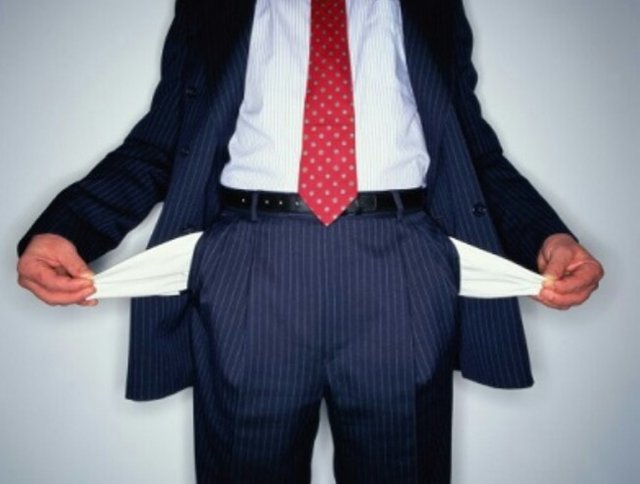Who is "bankrupt"

Kriz zamanlarında, giderek "iflas" kelimesini duyarız. İşletmelerin iflasları, finansal yapılar yaygınlaşıyor. Ve "iflas" terimi nasıl ortaya çıktı ve ne anlama geliyor?Eski zamanlardan beri, para değiştiriciler bir devletin madeni paralarını başka bir devletin madeni paraları karşılığında devralmışlardı. Faaliyetleri modern döviz bürolarının çalışmalarına benziyordu. Büyük liman kentlerinde veya perakende satış alanlarında oturdular.Para değiştiriciler kendi alanlarında gerçek uzmanlardı - bu noktada madalyonun gerçekliğini ve diğer ülkelerin madeni paralarını belirleyebildiler. İşlerinin başarılı bir şekilde yürütülmesi için her zaman çeşitli ülkelerin madeni para stokları vardı.Para değiştiriciler ortaklıkta birleştiler ve temsilcilerini dünyanın farklı yerlerinde bulundular.Birçok varlıklı tüccar, tasarruflarını para değiştiricilerle sürdürmeyi tercih etti. Onlar başka ülkelere gittiklerinde, kendileriyle nakit taşımadılar, bu da yeterince tehlikeli, ama onlar benden bir makbuz aldı ve hedeflerine varmak, yerel para değiştiricilere sunuldu ve "nakitsiz ödemeler" için belli bir tutarı ödemek, gerekli miktarı aldı.Cenova'da on ikinci yüzyılda bile, para değiştiricilere, bankacı ya da tezgah anlamına gelen, İtalyanca kelime bancodan bankacılar denirdi. Bunun anlamı, bir kişinin oturduğu, dünyanın çeşitli ülkelerinin madeni para sistemleri hakkındaki tüm bilgilere sahip olduğu ve bir madeni para sisteminden diğerine para transfer ettiği tezgahtı.Daha sonra bankalara isim veren, bankanın belli bir yüzdede kredi sağlamaya ve kredilendirmeye aracılık eden finans kurumlarına verilen bu tezgah oldu.Günümüzün modern büyük finans işletmelerinin kökenleri var. Zamanla, para değiştiriciler, büyük sermayeleri biriktirdiler, toplumun çeşitli kesimlerinden mevduatlar tuttular - seçkinlerden sıradan vatandaşlara ve köylülere.Çoğu zaman, çok şüpheli projeleri finanse ettiler: korsan seferleri, köle ticareti. İlkel sermaye birikimi çağı, korkunç suçlarla işaretlendi.Dolandırıcılık ve döviz işlemleri olmadan olmaz. Herkes, para değiştiricilerin sahip olduğu finans alanında böyle bir bilgiye sahip değildi. Bu nedenle, "prostak" daha düşük bir oranda bir değişim yapabilir, hatta sahte bir bozuk para yapıştırabilir. Ancak, para değiştirici hile suçundan mahkum olursa, o zaman ceza hemen oldu. Öfkeli kasaba halkı dolandırıcısını evlerinden kovaladı ve bankı halka açıktı. Bu nedenle, “banca rotta” ifadesi, kelimenin tam anlamıyla “kırık tezgah” anlamına gelmektedir.
In times of crisis, we increasingly hear the word "bankrupt." Bankruptcies of enterprises, financial structures are becoming commonplace. And how did the term "bankrupt" appear and what does it meanSince ancient times, money changers were engaged in the exchange of coins of one state for coins of another state. Their activity resembled the work of modern currency exchange offices. They sat in large port cities or in retail areas.Money changers were real experts in their field - on the spot they could determine the authenticity of the coin and its course to the coins of other countries. For the successful conduct of their business at hand they always had stocks of coins of various countries.Money changers united in partnership and had their representatives in different parts of the world.Many wealthy merchants preferred to keep their savings with me. When they went to other countries, they did not carry cash with them, which was dangerous enough, and they took from me a receipt and, arriving at their destination, presented it to local money changers and, having paid a certain amount for "Cashless payments" received the required amount.Back in the twelfth century, in Genoa, money changers were called bankers, from the Italian word banco, which meant a shop or bench. I meant the same bench on which a person sat who had all the information about the coin systems of various countries of the world and transferred money from the same coin system to another.It was this bench that later gave the name to banks - financial institutions that are engaged in raising funds and issuing loans at a certain percentage.From time to time, modern large financial enterprises have their origins. Over time, money changers accumulated huge capital, they kept deposits from various sectors of society - from the elite to ordinary citizens and peasants.Often, they financed very dubious projects: pirate expeditions, slave trade. The era of the initial accumulation of capital was marked by terrible crimes.It did not do without fraud and in exchange operations. Not everyone possessed such knowledge in finance as he had. Therefore, the “simpleton” could exchange at a lower rate, or even stick a fake coin. But if the money changer was accused of cheating, then the punishment was immediate. The furious townspeople drove the swindler from their homes, and his bench was publicly broken. Therefore, the expression “banca rotta” literally means “broken bench”.
İmage1
This post has received a 21.56% upvote from thanks to: @camal.
thanks to: @camal.
For more information, click here!!!!
Send minimum 0.010 SBD|STEEM to bid for votes.
Do you know, you can also earn daily passive income simply by delegating your Steem Power to @minnowhelper by clicking following links: 10SP, 100SP, 500SP, 1000SP or Another amount